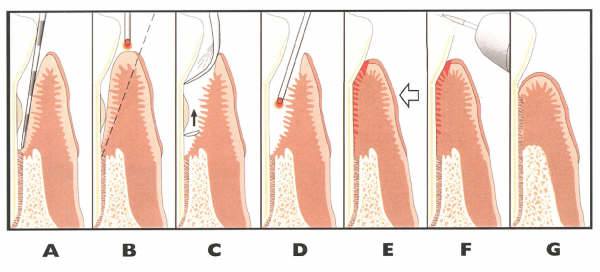
Laser dentistry is a safe, minimally invasive option which allows your dentist to perform many dental procedures without any needles and drills, allowing for a comfortable procedure with less discomfort and possible pain. This is done through the use of highly-focused light beams which target different tissues. Before you schedule your next dental appointment, read up on why you should consider a laser service instead.
What is Laser Dentistry?
Laser dentistry refers to any dental procedure that operates with lasers, which are highly-focused light beams. Different types of light beams are used for different procedures, which involve either soft or hard tissue. This can happen when the wavelength of the laser is changed, as each kind of tissue absorbs wavelengths of light in different ways. As a result, these lasers are compatible with the tissues in your mouth. But how do they work, and how should you go about choosing a laser dentist? We’ll explain.
Soft Tissue Lasers
Soft tissue lasers are designed specifically for the gums. Not only are they ideal for cutting into soft tissue, they can simultaneously seal exposed blood vessels. This reduces the amount of bleeding you may experience, speeds up the healing process, and lets you see the results right after a procedure. Their main uses are:
- Treating Periodontal Disease
- Gingivectomies
- Frenectomies
- Removing aphthous ulcers
- Gingival contouring
- Reshaping gums
- Crown lengthening
- Thoughing
- Removing soft tissue lesions
- Removing folds caused by dentures
Hard Tissue Lasers
Hard tissue lasers focus on your teeth. Its wavelength allows it to cut through water and bone, allowing for extremely precise and accurate results. Their main uses are:
- Detecting cavities
- Managing tooth sensitivity
- Preparing tooth for dental filling
Why choose lasers over traditional procedures?
Because dental laser treatments are much less invasive they go more smoothly, reduce most feelings of discomfort for the patient and allow the affected area to heal faster. For major operations, patients are less likely to require sutures. Anaesthesia may not be needed as well. In terms of potential infection, lasers in addition to performing their task will also sterilize the gums with its specific wavelength and from the heat they can produce, making infection less likely.
If you’ve been in a dental procedure before such as for a root canal, you know how uncomfortable the drills and needles that are needed can be. Your mouth must still be propped open, but the whole procedure will feel a lot more comfortable when lasers are used. You’ll also find that post surgery with a laser treatment will be a lot smoother. After a gum disease treatment for example, there will be far less bleeding and discomfort with laser treatment, than with a scalpel and suture leaving an open wound. Although you must still follow proper cleaning and care instructions as advised by your dentist.
Laser dentistry is the future of dentistry that’s here today. If you want to avoid the pain and discomfort of traditional practices, think about having a minimally invasive dental surgery done to fix your teeth problems. Talk to your trusted experts of laser dentistry in Sydney today with any questions you may have.

